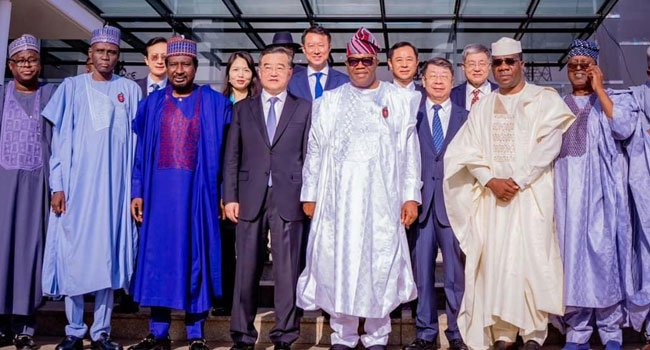The Federal Government’s drive towards a $1 trillion economy has received significant backing through strategic partnerships with the Partnership for Learning for All in Nigeria (PLANE) and the Foreign, Commonwealth and Development Office (FCDO) to deepen financial inclusion governance.
This, the government said, informed its decision to upscale the governance of national financial inclusion with all stakeholders, including the office of the Vice President and the Central Bank of Nigeria (CBN), on board.
Speaking at a high-level economic workshop in Abuja on Thursday, Deputy Chief of Staff to the President (Office of the Vice President), Ibrahim Hassan Hadejia, explained that successful implementation of government’s social intervention programmes depends on the country’s rapidly digitalizing payment systems.
“Financial inclusion has always been within the mandate of the Central Bank but over the years, the targets have been missed. What the Presidency has decided to do is to provide a leading role in galvanizing stakeholders who are part of that mandate,” Hadejia said.
While financial exclusion has dropped from 46% in 2012 to 26% currently, the government stressed this progress is not sufficient to support ongoing economic reforms.
“If we don’t achieve financial inclusion, every government programme aimed to have a remedial impact on the most vulnerable may not have its needed impact.
“A lot of government programmes in the reform process are in targeted interventions which have all migrated to digital payment platforms. If we don’t move on financial inclusion, we basically achieve nothing,” he added.
Hadejia, however, noted that “Nigeria is at the forefront of the fintech industry. Outside banks now, there are a lot of institutions licensed by government to provide financial services that are not essentially full banking services that would enable most of these financially excluded people to participate.”
Earlier, Technical Advisor to the President on Economic and Financial Inclusion, Dr. Nurudeen Zauro, explained that the journey started in 2012 when the National Financial Inclusion Strategy was issued.
“The landscape before us is clear, we have over 200 million people, a GDP of USD 472 billion, but less than 1% are insured and 43% live below the poverty line,” Zauro explained.
He emphasized that the initiative has gained needed support through international partnerships with PLANE and FCDO, adding that banking penetration has seen significant growth, rising from 25% in 2008 to 52% by 2023.
According to Zauro, the Aso Accord, signed in April 2024, “represents one of the highest-level commitments for this country in support of economic and financial inclusion“.
He explained that the comprehensive strategy supports President Bola Tinubu’s Renewed Hope Agenda and the nation’s $1 trillion economy vision.
“We’re not just throwing numbers around. We’re talking about creating real opportunities for over 30 million currently excluded Nigerian adults through six critical drivers: easy access, broad range of services, customized solutions, affordability, enhanced opportunities, and sustainability.
“In all this, financial literacy remains a fundamental pillar. PLANE is about innovative ways of learning targeting non-state actors. Through this partnership, we can enhance the financial literacy of our vulnerable populations across the country.
“Now we are talking about economic and financial inclusion in terms of economic opportunities to support the financial inclusion component. People need to be gainfully employed so that when they come into the financial system, they can have a reason to use the accounts they opened,” Zauro noted.
On his part, the Country Lead of PLANE, Dr. James Fadokun, said the FCDO has been supportive of the education for all project in Nigeria, especially non-state schools that cater to the educational needs of the vulnerable population, including skill acquisition centers.
“We are creating an ecosystem to support private and public sector schools to enhance their curriculum development in financial literacy,” Fadokun said.
According to a statement from the spokesman of Vice President Kashim Shettima, Stanley Nkwocha; Fadokun further explained that “the organization is committed to aligning its strategic direction with the financial inclusion goals set out in the Aso Accord in the education sector“.
The National President of Non-State Schools of Nigeria, Sale Kwaru, praised the high-level commitment from the Presidency, PLANE, and FCDO and expressed optimism that it will ensure that the poor and vulnerable are integrated into the mainstream financial systems.

 2 weeks ago
37
2 weeks ago
37















 English (US) ·
English (US) ·